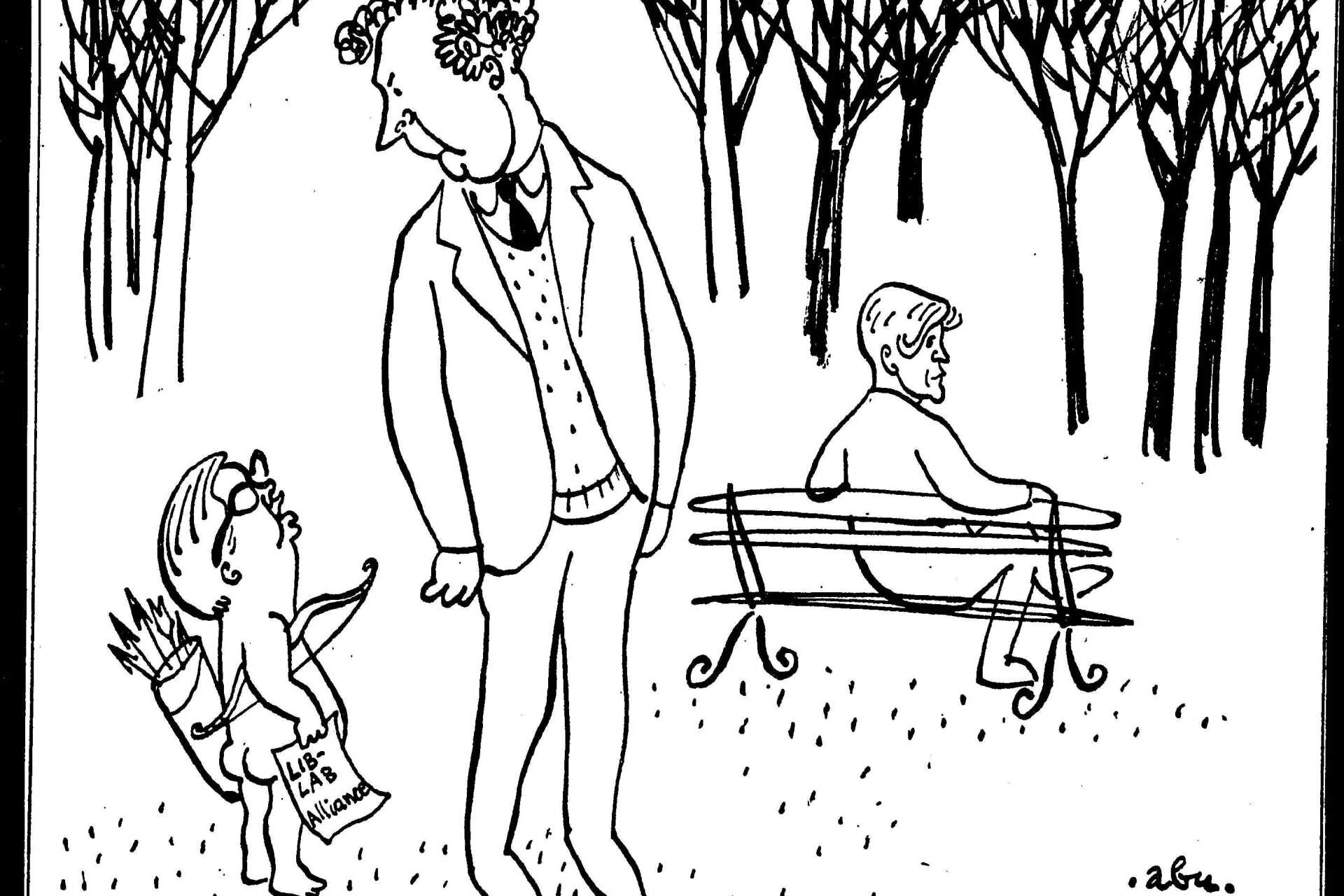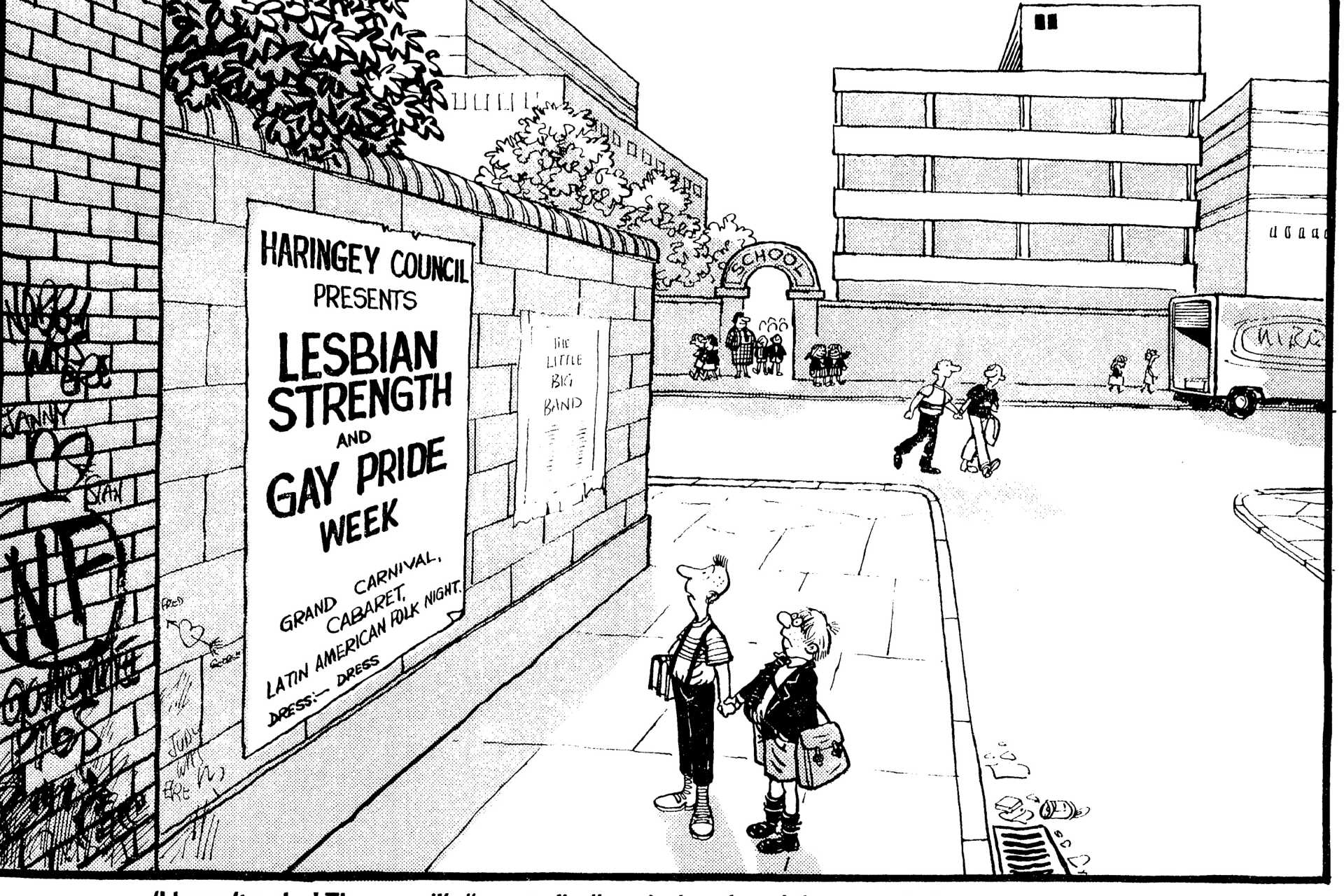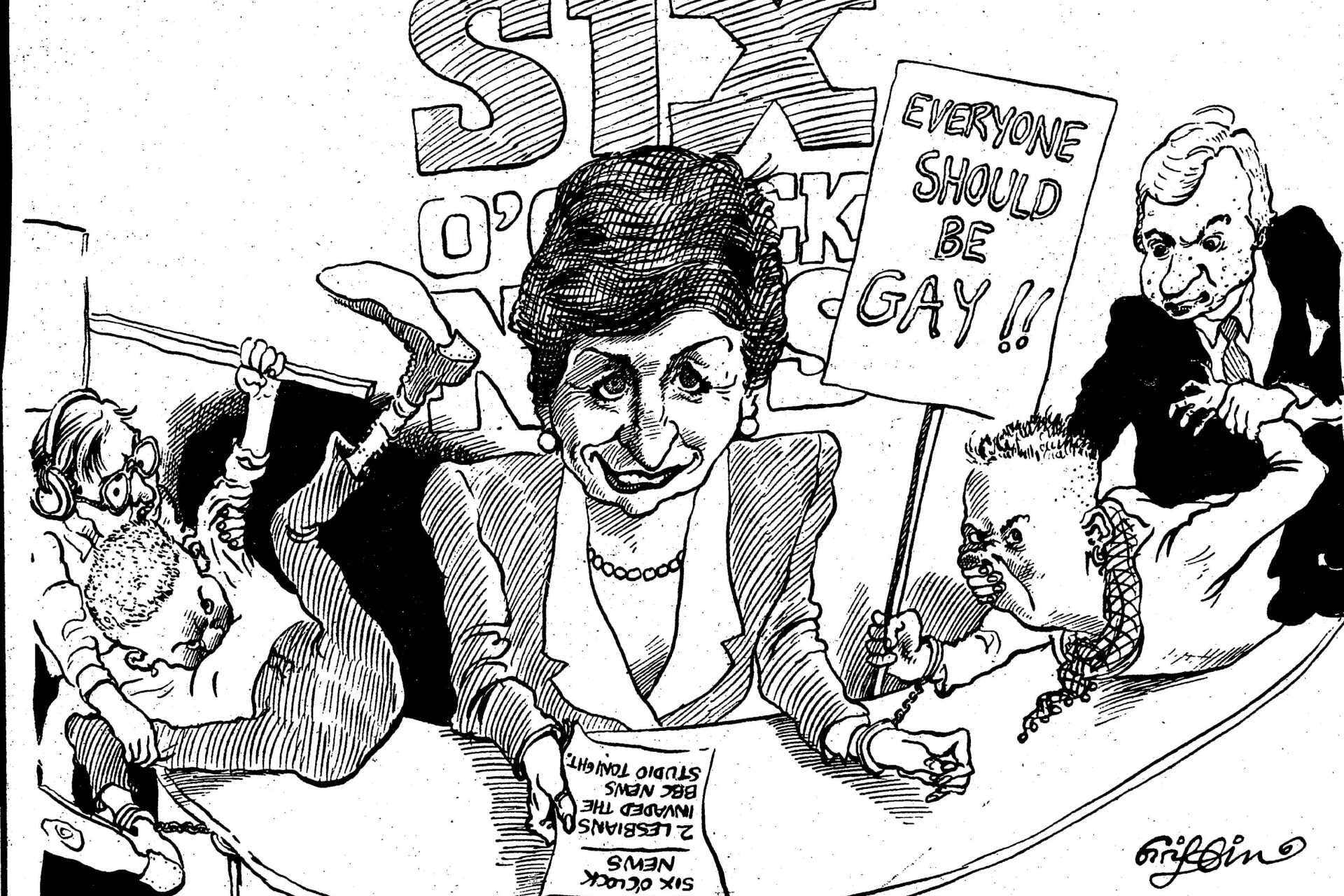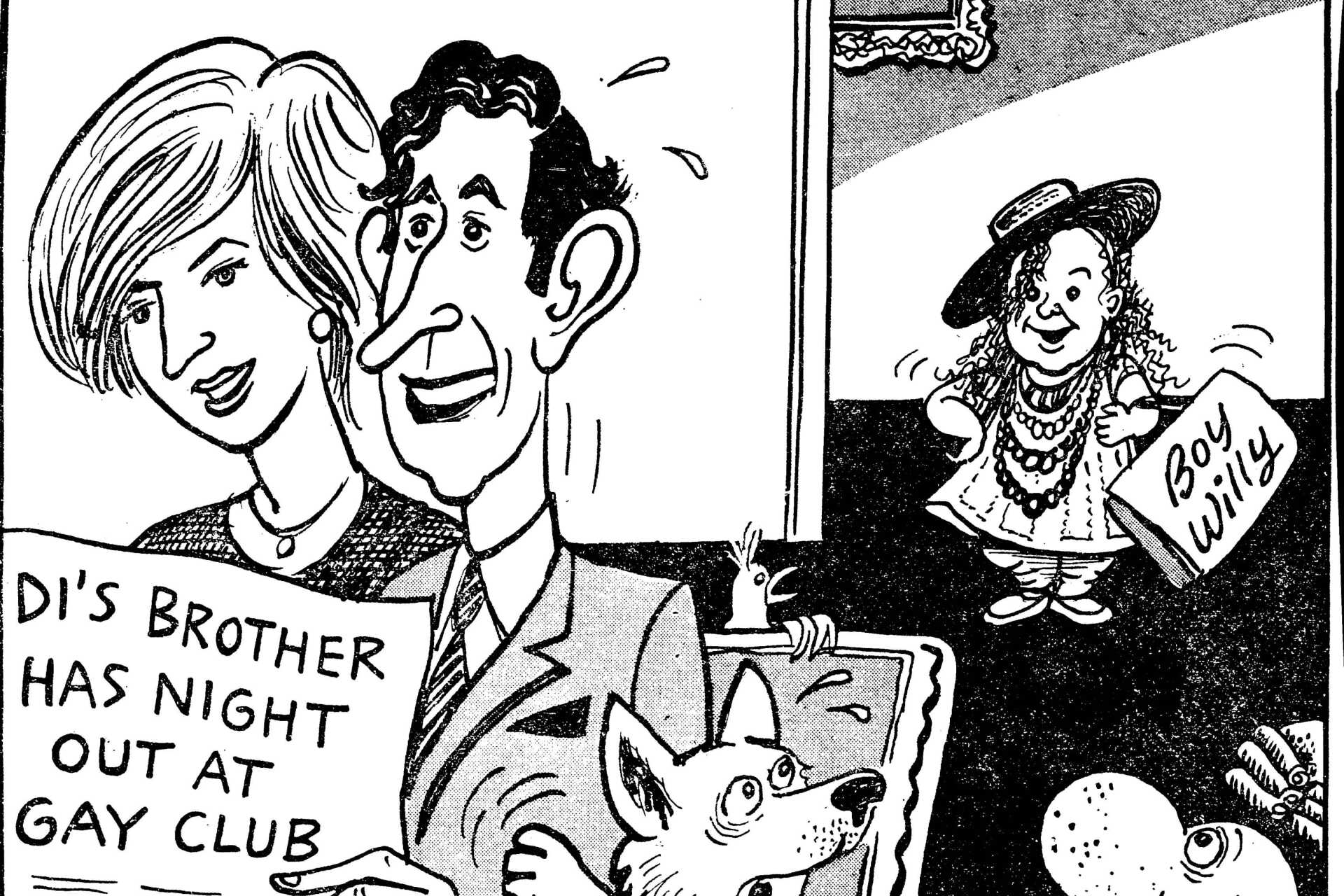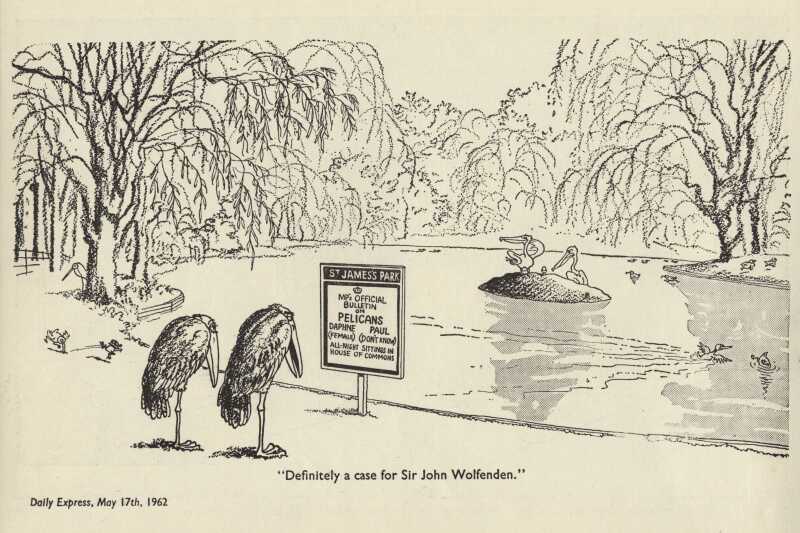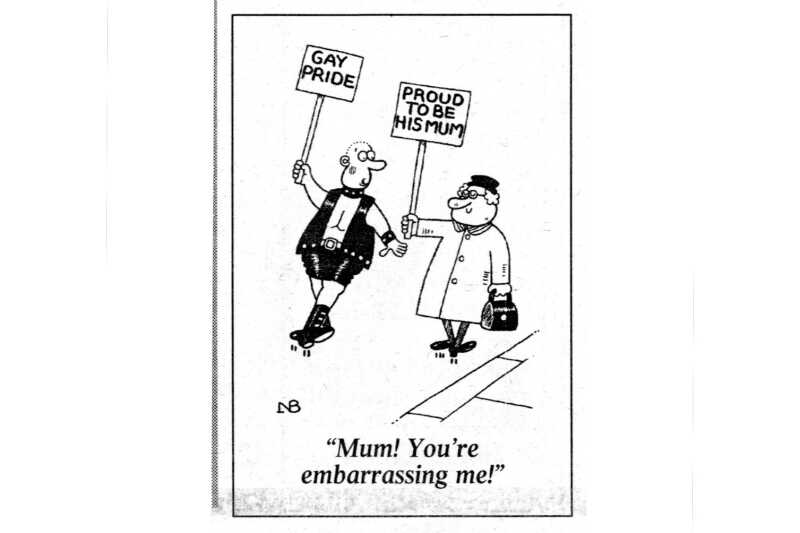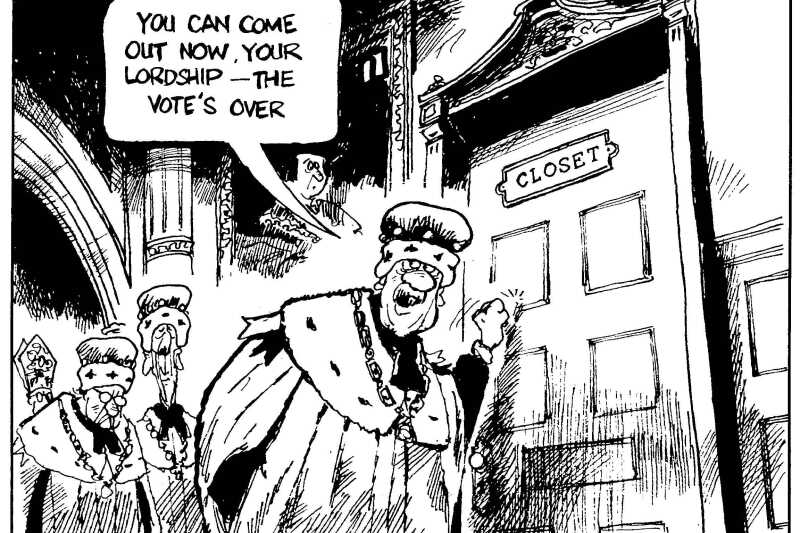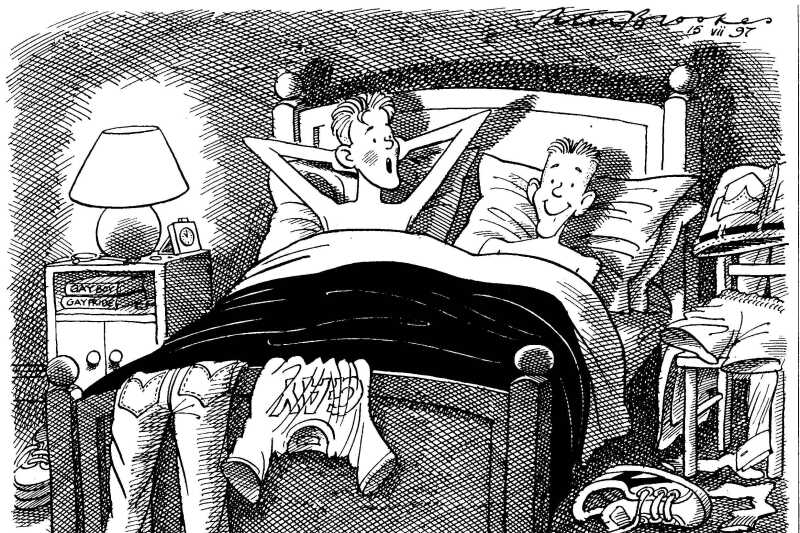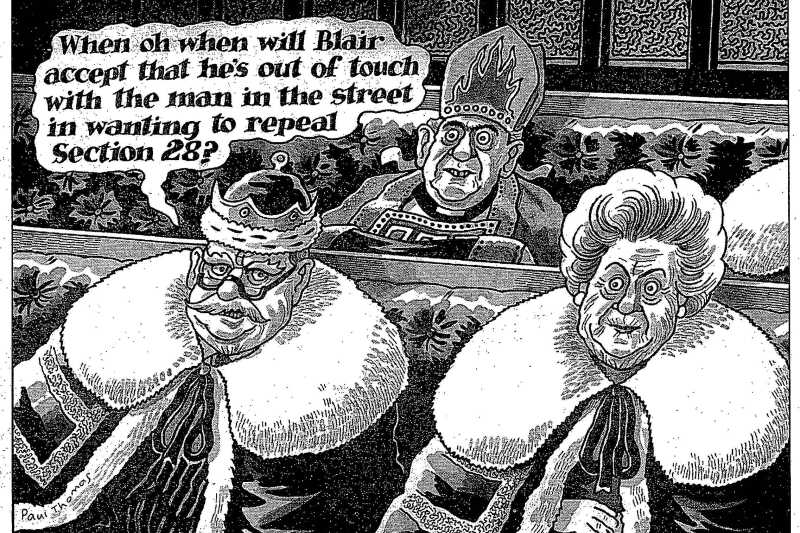Exhibition - The (In)visibility of LGBTQ+ People
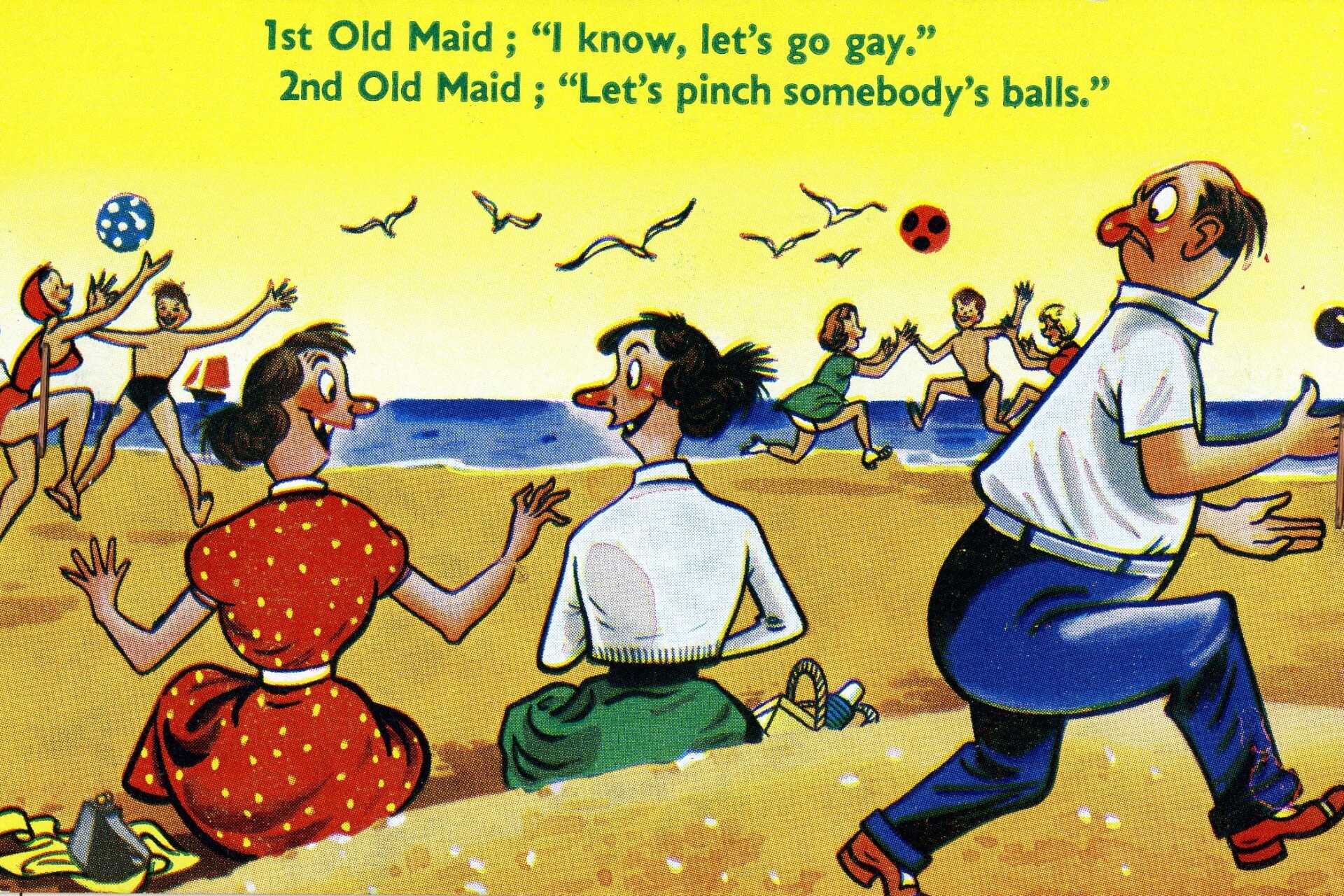
Prof. Dominic Janes explores the ways in which British cartoonists, notably those published in the British print media, have depicted LGBTQ people since the passing of the Sexual Offences Act 1967.
Postwar LGBTQ lives
The pressures of the World Wars disrupted traditional roles for men and women, but public attitudes to LGBTQ people continued to swerve between wry amusement and moral panic. The Wolfenden Committee’s 1957 recommendation to decriminalise male homosexuality was partly implemented a decade later in England and Wales. Trans individuals found themselves the subject of lurid exposés. Progressive views, including lesbian and gay liberation, were mocked as deriving from a trendy leftist elite.
The Conservative 80s
Newspapers that supported Prime Minister Margaret Thatcher’s blend of free-market capitalism and social conservatism mocked the influence of ‘poofters’ (offensive slang for queers) on so-called ‘loony left’ Labour councils and championed Section 28 that attempted to ban the ‘promotion’ of homosexuality. The AIDS crisis stoked popular fears but also pushback from a new wave of queer activists. As a result, LGBTQ issues came into the mainstream of political debate and became a popular topic for cartoons which were all too often racist and sexist as well as homo- and transphobic.
Resisting Reform
The death of Princess Diana, seen as a champion of progressive causes, in 1997, happened at the same time as the Labour Party came back into power and launched a range of human rights initiatives. Change was spurred on by cases taken before the European Court of Human Rights and resulted in particularly entrenched opposition to the inclusion of openly lesbian and gay people in the military.
Image: Michael Heath, [no caption], The Sunday Times, 30 Aug 1998 [PC4403]
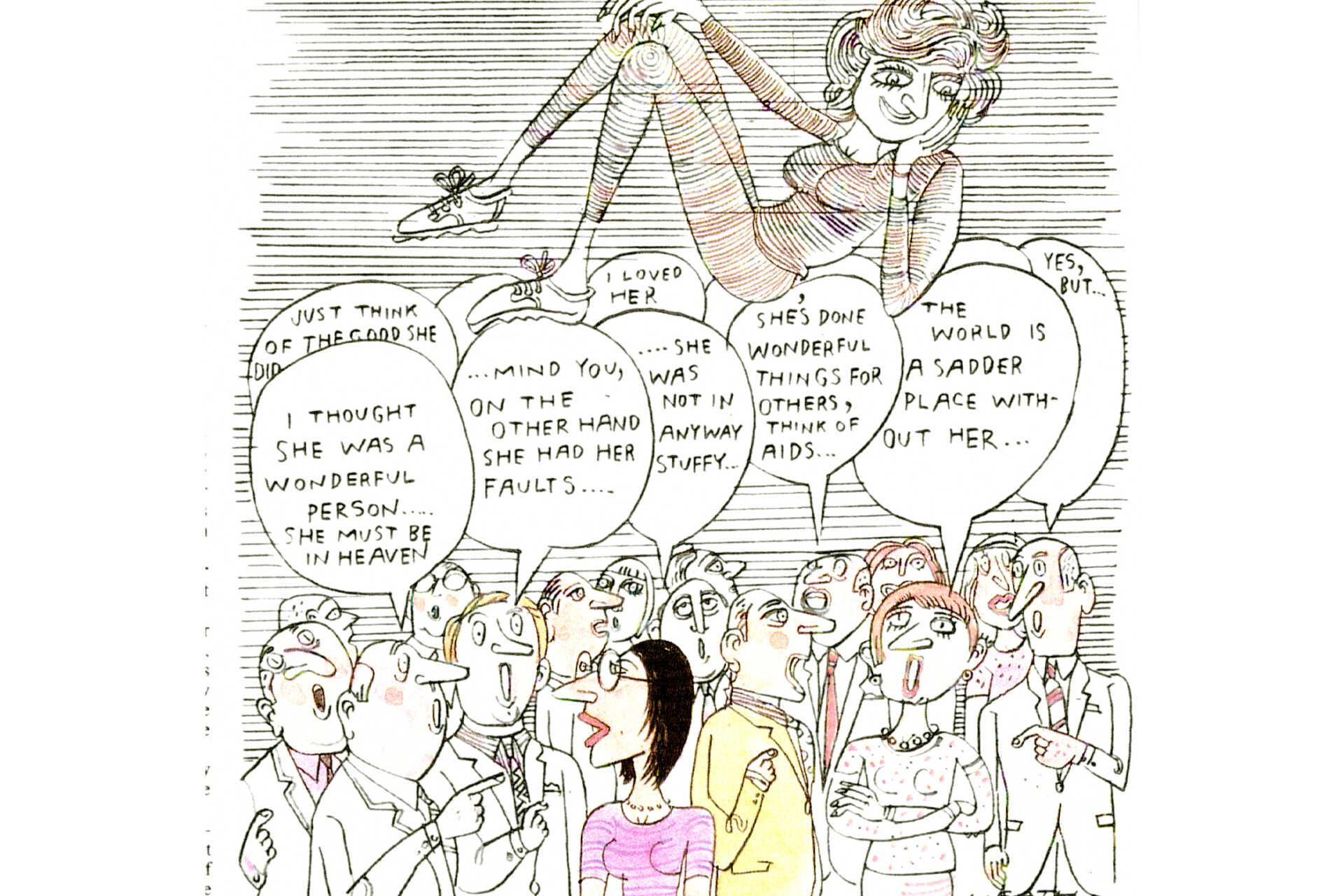
Same-Sex Marriage
The Civil Partnership Act (2004) allowed same-sex civil unions but debates about the ‘sacredness’ of marriage held up further legislative change. In 2010 the Conservatives were only able to secure a majority in Parliament by signing an agreement with the centrist Liberal Democrats. This resulted in the marginalisation of the political right-wing and, in 2013, same-sex marriage was duly legalised in England and Wales followed, shortly after by Scotland. Opposition centred not only on legal issues, but also on matters of personal faith, morality and attitudes to nature; as a result, the Church of England was prohibited from performing these ceremonies.
‘I say to my colleagues that I sit alongside them in committee, in the bars and in the tearoom, and I queue alongside them in the division lobby. But when it comes to marriage, they are asking me to stand apart and to join a separate queue. I ask my colleagues, if I am equal in this house, to give me every opportunity to be equal.’
Mike Freer, Conservative MP for Finchley and Golders Green, in ‘Gay marriage debate in quotes’, The Guardian, 6 February 2013
Image: Grizelda Grizlingham, "Say what you like about gay marriage - I've completely forgotten about our dier [sic] financial situation.", The Spectator, 31 May 2013 [GGD0545]
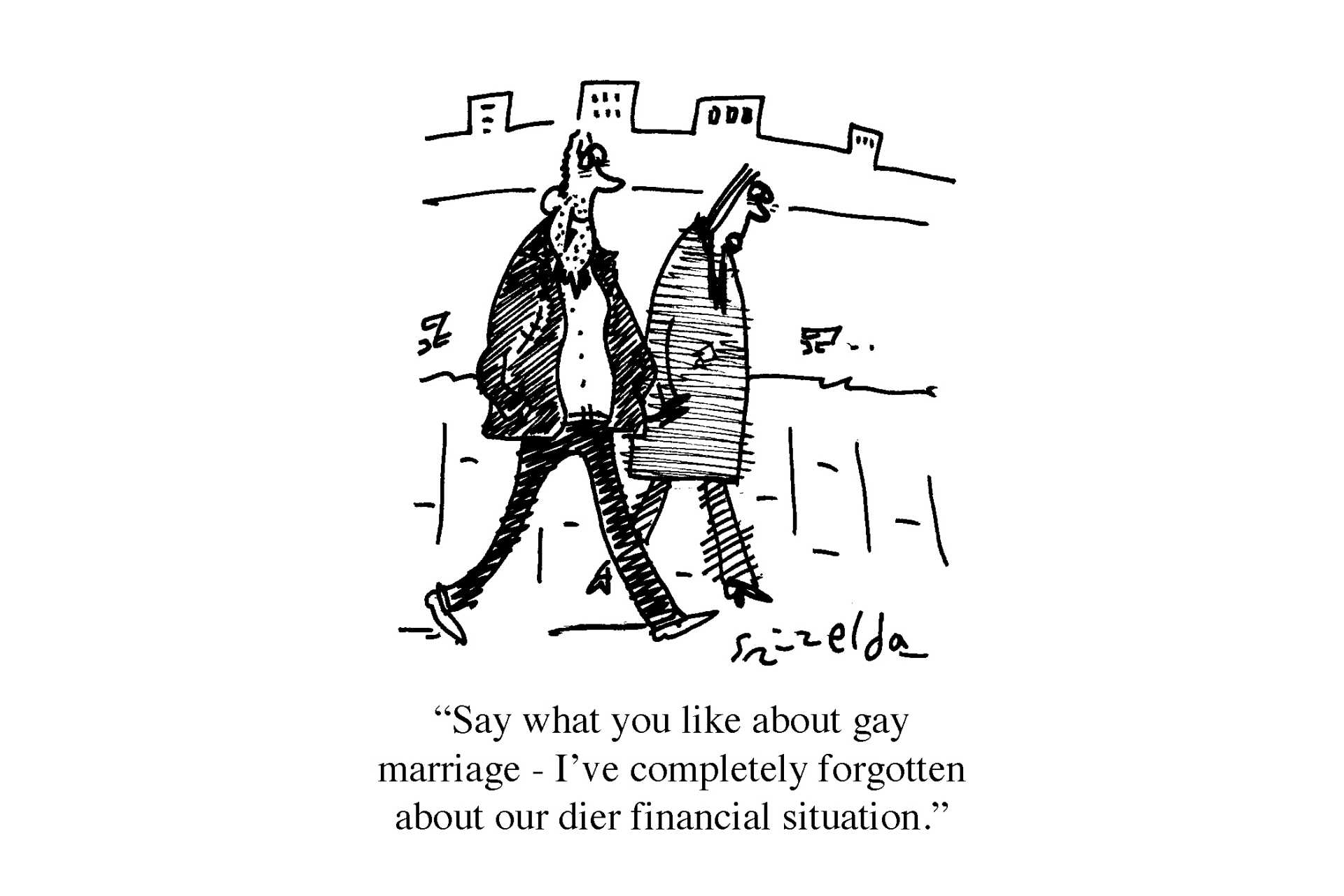
Brexit and the Culture Wars
Attitudes toward LGBTQ people are much more favourable in the United Kingdom today than they were in the 20th century. At the same time, there have been concerted moves to roll back reforms that have been labelled ‘politically correct’ or ‘woke’ particularly in relation to trans issues. The repeal of the Human Rights Act and withdrawal of Britain from the European Court of Human Rights remain central to projects aimed at reversing the progressive LGBTQ agenda.
‘The Supreme Court has ruled that the legal definition of a woman is based on biological sex, in a decision which could have far-reaching implications for who can access single-sex services and spaces… The judges were tasked with deciding on the correct interpretation of “sex” and “woman” in the main piece of legislation setting out sex-based legal protections. Specifically, they ruled that the definition of sex as used in the Equality Act 2010 is "binary" and decided by biology - a person who was not born as a biological female cannot obtain the legal protections the Act affords to women by changing their gender with a Gender Recognition Certificate.’
BBC News,16 April 2025
